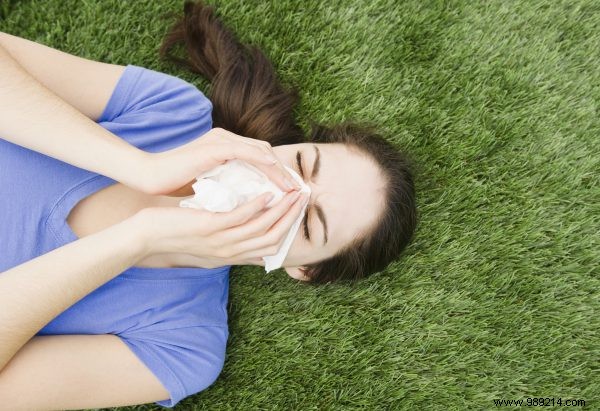
Spring is in the air, but oh dear, that means that the complaints of hay fever patients will also start to play! In this file about hay fever we have collected all the ins &outs for you.
Hay fever is one of the most common allergies. It affects as many as 25 to 30 percent of the Dutch population. This pollen allergy causes complaints such as:
These are the most common complaints, but headaches, fatigue, poor sleep, sluggishness or difficulty concentrating also occur.
It can make you feel pretty miserable. For example, Mijnluchtweg ALLERGY.nl says that hay fever has a greater influence on labor productivity than diseases such as asthma, diabetes, depression or cardiovascular disease, while these conditions are often considered to be worse.
There are different types of medication available for hay fever:tablets, nasal sprays, eye drops, puffers, immunotherapy. Consult with your doctor how you can best tackle your hay fever.
But you also have influence on the degree of complaints. Despite medication, you can unknowingly make your hay fever worse than it is. Maybe you left your laundry outside, or put your clothes on again. Or do you do one of these things.
Hay fever is often related to spring when everything is in bloom. But there are different types of pollen that each bloom at a different time. If you are unlucky that you are allergic to different types of pollen, you can suffer from hay fever all year round!
In the pollen calendar you can see exactly when which pollen is active.
The weather also influences the strength of the pollen. So also follow the pollen weather forecast.
Now in times of corona it is difficult to determine what exactly you have? Is it hay fever, a cold or do you have corona.
If you are a hay fever patient, you know approximately in which period you suffer the most. Still, it's nice to at least have some handles to see the difference between a cold and corona.
Sneezing or sneezing in silence several times in a row is often a symptom of an allergy. With a cold you sneeze less often and louder on average.
With a cold you can suffer from tearing eyes as a symptom, but with an allergic reaction that affects your eyes, your eyes water even more.
During a cold, your snot has more color, from yellow to green. With an allergy, snot is almost colorless.
A tickle in your nose caused by an allergy often originates deep in your nose. Scratching or rubbing your nose will therefore not work well.
Dark circles under your eyes are not only caused by fatigue. An allergy can also be the reason for this.
Do you suspect that it really is a cold or are you in doubt, take a corona test to be sure.